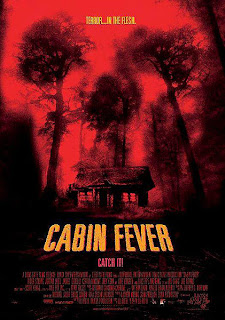Man in a Car: Tom Hardy cements "Locke" as a mostly worthwhile stunt
Locke (2014)
85 min., rated R.
Like 2010's riveting Ryan-Reynolds-in-a-box thriller "Buried," "Locke" never pulls the focus from actor Tom Hardy, who drives and talks via hands-free Bluetooth for close to an hour and a half in real time. Once he's in that car, he never gets out. Screenwriter Steven Knight ("Dirty Pretty Things," "Eastern Promises") makes his sophomore directorial effort with this gimmicky experiment, taking a risk, especially with the generation of mobile app Vine, and proposing the question, "Would you watch Tom Hardy drive and talk for 85 minutes?" A one-man show is a bold concept, creating a pressure cooker out of his personal and professional conflicts, but that's just it — it's not much more than a concept. The actor is a tour de force, to be sure, but while "Locke" has snatched up loads of critical acclaim, the rest of the film never feels as engrossing as Hardy's electrifying performance.
One thing is fair to assume from the get-go: Ivan Locke (Hardy) has a lot on his plate. A construction foreman leaving a work site in Birmingham, England, he hops in his BMW X5 and doesn't head back home to his wife of fifteen years, Katrina (Ruth Wilson), who has prepared dinner, and two sons (Tom Holland, Bill Milner), who are excited to watch a televised game with their dad. Instead, Ivan is driving to London to see Bethan (Olivia Colman), a fragile woman who's about to deliver his baby. But between juggling those personal calls comes an on-slaught of business calls from boss Gareth (Ben Daniels) and overwhelmed assistant Donal (Andrew Scott), regarding one of the biggest European concrete pours in the morning that won't go smoothly with him gone. This one life-altering night will seal the fate of Ivan's family and job.
For a $2-million-budgeted 85-minute film shot over five nights and confined to a moving BMW, it's worth crediting writer-director Steven Knight for accomplishing a minimalist one-act play with more visual interest than expected. Certainly casting Tom Hardy was a masterstroke, as it's a testament to him that the viewer is mostly riveted throughout the film's full run time. As Ivan Locke, a pragmatic man who wants to do the right thing and is able to make decisions for himself, Hardy is the main event, communicating so much with his face and hardly ever breaks his calm. When you watch an actor of his magnetic caliber, you see the wheels turning upstairs and his steely emotions ready to crack. (It was Hardy's decision to speak with a Welsh accent, and he actually had a cold while shooting, which adds to the unraveling of his not-so-swell evening.) Over the course of the film, we do learn an awful lot about Ivan, his relationships, and what his job has entailed for the nine years he's been doing it through every minute action and conversation. The other performers on the other end of the line remain disembodied voices, but each one of them feels like an authentic person; perhaps it has something to do with the actors making actual phone calls from a conference room to Hardy in the car instead of Knight adding their voices later with ADR.
Heady but humorous when need be, "Locke" is a neat, pared-down technical and acting exercise that's often more interesting to admire how it was made than it is to watch. There is a dynamic alchemy to how director Knight nocturnally shoots in and around one car (courtesy of RED Epic digital cameras and Hans Zambarloukos' dreamily crisp cinematography). Since there are only so many angles to shoot someone driving and make it cinematic, the filmmaker makes sleek, controlled use of shadows and a lighting scheme with highway and car lights reflecting through the BMW's windows. Knight also has the nerve to never give his character an exit strategy from the same enclosed space or feel the need to shoehorn in a slam-bag action sequence. With each call, one right after the other, Knight does build dramatic tension, until a repetitiveness sets in and he can't quite pull it off the whole way through. Even when he's not talking on the phone with real people, Ivan has critical monologues with his rear-view mirror to his imaginary late father in the back seat, a "daddy issues" conceit that's sparingly used and brings an extra edginess.
Ultimately, the effectiveness of the film lives or dies with Hardy's performance. He's an actor of such great range and intensity, both internal and external, that even when his face was obscured by a mask playing Batman villain Bane in "The Dark Knight Rises" or the material was beneath him in the daft romantic-comedy "This Means War," Hardy always registers. Here, watching him play a character who's used to being in control and now sweating bullets on his way toward a new life is absorbing and powerful in places. In the end, though, Steven Knight's execution is alternately ingenious and monotonous. There are stakes, but no actual payoff. When the end actually comes, it's akin to Ivan finally getting off at an exit. Like a piece of live theatre that goes back to the basics of having an actor in front of the camera, "Locke" might not be worth every viewer's while, but save for its flaws, it's still an admirable stunt.
Grade: B -












Comments
Post a Comment